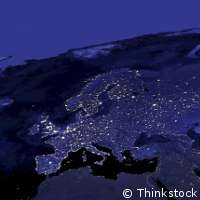Securing energy independence in the EU

Technology will have an important role to play in helping to secure EU energy independence. According to Dominique Ristori, Directorate General for Energy, technologies are now maturing for a real energy revolution however we still need to bridge the gap between research and industry. The Directorate General elaborated on this point within the context of EU efforts to transform into an 'Energy Union' at a European Policy Centre (EPC) briefing in Brussels.
Particularly in the shadow of the crisis in Ukraine, energy is at the heart of the EU's core geopolitical concerns. Our energy dependence and its costs are undeniable, as the Directorate General explained: we import 53 % of all the energy consumed at a cost of more than EUR 1 billion per day. This includes 88 % of our crude oil and 66 % of our natural gas. Six EU Member States are entirely dependent on Russia for their natural gas. Meanwhile three Member States - Estonia, Latvia, and Lithuania - rely on a single external operator for the operation and balancing of their electricity network.
In an effort to address the problem, the European Commission published a European Energy Security Strategy in late May. Developing energy technologies is one of the medium/long term goals in the strategy. The document specifies the Commission's intention to 'mainstream energy security in the implementation of the priorities of the Horizon 2020 programme'. Other research-related aspects include launching a European science and technology network on unconventional hydrocarbon extraction and promoting the development of renewable energy technologies in multilateral and bilateral negotiations.
Speaking to the crowd gathered at the EPC briefing, Directorate General Ristori noted that at least EUR 6 billion within the Horizon 2020 pot is dedicated to energy. However while EU programmes like Horizon 2020 would be important to helping us implement the strategy, according to Ristori, the majority of finance should come from the private sector: 'The return on investment for energy projects is good - better in comparison to other sectors such as transport. The private sector should be the dominant source of financing.'
When it comes to transforming into an 'Energy Union', the Directorate General insisted that the technology is mature enough to move forward. He noted, however, there is a gap between the research and industry that needs to be bridged.
According to Ristori, in the next three to four years, conditions will be met to produce an energy box that gives full command of energy consumption to each individual. He noted, 'Technologies are mature enough. There is no obstacle to going rapidly into that phase and to produce 3-4 million 'smart homes' over the next years'. Ristori concluded however that this would require that we improve the capacity of our industry to produce products and we build a bridge between the research and industrial sectors.
More information: For more information, visit: ec.europa.eu/energy/security_of_supply_en.htm
Provided by CORDIS





















